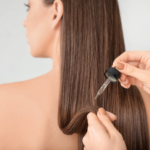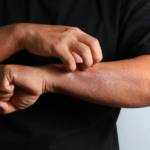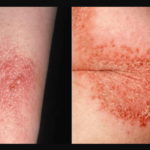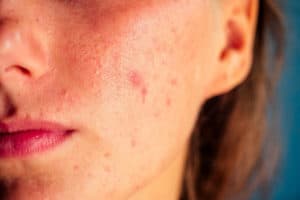Aquaphor is a popular skincare product that has been used for decades to treat various skin conditions such as dryness, chapped lips, and minor cuts. Some people have also claimed that Aquaphor can be effective in treating acne. However, does Aquaphor really help acne?
Acne is a common skin condition that affects millions of people worldwide. It occurs when hair follicles become clogged with oil and dead skin cells, leading to the formation of pimples, blackheads, and whiteheads.
While there are many over-the-counter and prescription treatments available for acne, some people have turned to natural remedies like Aquaphor to help treat their skin.
So, can Aquaphor really help acne? Some dermatologists believe that using Aquaphor on acne-prone skin can actually make the condition worse. This is because Aquaphor is an occlusive moisturizer, which means that it forms a barrier on the skin that can trap oil, dirt, and bacteria.
This can lead to clogged pores and more breakouts. However, there are also some people who swear by Aquaphor for acne, claiming that it helps to soothe their skin and reduce inflammation.
What is Aquaphor?

Aquaphor is a brand of skin care products manufactured by Eucerin, a subsidiary of Beiersdorf AG. The most popular product in the Aquaphor line is the Aquaphor Healing Ointment, which is a multipurpose product that can be used to moisturize and protect the skin.
The main ingredient in Aquaphor Healing Ointment is petrolatum, also known as petroleum jelly. Petrolatum is an occlusive ingredient, which means that it forms a barrier on the skin that helps to prevent moisture loss. This makes it an effective moisturizer for dry or chapped skin.
In addition to petrolatum, Aquaphor Healing Ointment also contains other ingredients that help to soothe and protect the skin. These include lanolin, which is an emollient that helps to soften and smooth the skin, and glycerin, which is a humectant that helps to attract moisture to the skin.
Aquaphor Healing Ointment is a non-comedogenic product, which means that it is unlikely to clog pores or cause acne breakouts. It is also free from fragrances and preservatives, which makes it a good choice for people with sensitive skin.
Overall, Aquaphor Healing Ointment is a versatile and effective product that can be used to moisturize and protect the skin. Its occlusive properties make it an ideal choice for people with dry or chapped skin, while its non-comedogenic formula makes it suitable for people with acne-prone skin.
How Does Aquaphor Work?
Aquaphor is a multi-purpose ointment that is often used to treat a variety of skin conditions, including acne. As per Medical News Today, it is a petroleum-based product that works by creating a barrier on the skin, which helps to lock in moisture and protect the skin from further damage.
One of the key benefits of Aquaphor is its ability to hydrate and moisturize the skin. It contains a blend of emollients, which are substances that help to soften and soothe the skin.
This can be particularly beneficial for people with dry, sensitive, or damaged skin, as it can help to restore the skin’s natural moisture balance and improve its overall texture and appearance.
Another way that Aquaphor works is by promoting healing. It contains ingredients that can help to speed up the healing process for wounds, burns, and other injuries.
This can be especially helpful for people with acne-prone skin, as it can help to reduce the risk of scarring and promote faster healing of acne lesions.
Aquaphor is also noncomedogenic, which means that it is less likely to clog pores and cause breakouts. This is important for people with acne-prone skin, as clogged pores can lead to the formation of pimples and other types of acne lesions.
In addition to its moisturizing and healing properties, Aquaphor can also be used to protect the skin from further damage. It can help to soothe and calm irritated or inflamed skin, and can be particularly helpful for people with eczema, psoriasis, or other types of skin rashes.
Overall, Aquaphor is a versatile and effective skincare product that can be used to treat a variety of skin conditions, including acne. Its ability to hydrate, heal, and protect the skin makes it a valuable addition to any skincare routine.
Does Aquaphor Help Acne?
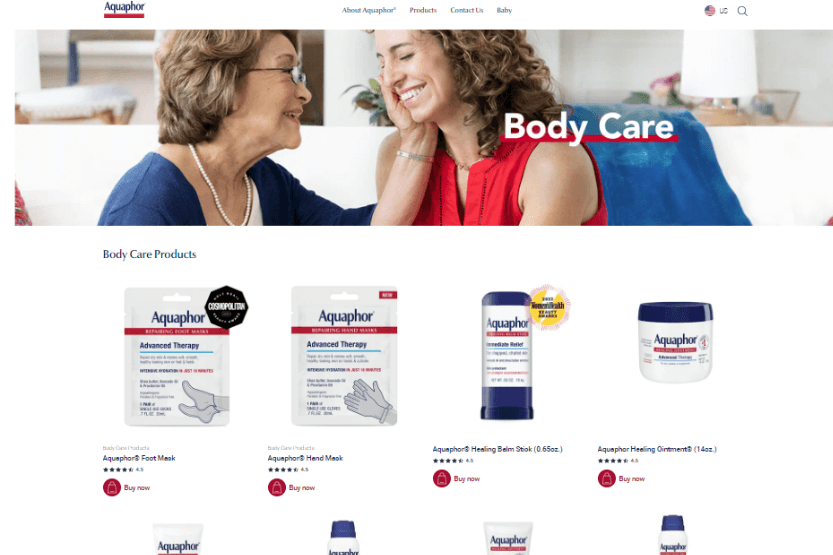
Aquaphor is a popular over-the-counter ointment that is commonly used to treat dry, cracked, or irritated skin. However, some people claim that Aquaphor can also be used to treat acne. So, does Aquaphor help acne?
Aquaphor does not contain any active ingredients that are known to be effective in treating acne. It is primarily made up of petrolatum, mineral oil, ceresin, and lanolin alcohol, which are all emollients that help to soothe and moisturize the skin.
While these ingredients may help to reduce dryness and irritation associated with acne, they do not directly target the root cause of acne.
In fact, using Aquaphor on acne-prone skin may actually make the problem worse. Aquaphor is a heavy, occlusive ointment that can clog pores and trap bacteria, leading to more breakouts.
Additionally, some people may be sensitive to the ingredients in Aquaphor and experience side effects such as redness, itching, or stinging.
Benzoyl peroxide is a common acne treatment that works by killing the bacteria that cause acne and preventing clogged pores. It is much more effective at treating acne than Aquaphor.
If you are looking for an acne treatment, it is best to choose a product that contains benzoyl peroxide or another active ingredient that is known to be effective in treating acne.
While Aquaphor may not be an effective acne treatment, it can be helpful in preventing scarring and promoting healing of acne scars. The emollient properties of Aquaphor can help to keep the skin moisturized and reduce the appearance of scars over time.
In conclusion, Aquaphor is not an effective treatment for acne. It may actually make the problem worse by clogging pores and trapping bacteria.
If you are looking for an acne treatment, it is best to choose a product that contains benzoyl peroxide or another active ingredient that is known to be effective. However, Aquaphor can be helpful in preventing scarring and promoting healing of acne scars.
How to Apply Aquaphor as an Acne Treatment?
Aquaphor has been found to be an effective treatment for acne due to its moisturizing properties. Here are some tips on how to apply Aquaphor as an acne treatment:
- Start by washing your face with a gentle cleanser and patting it dry. It is important to ensure that your skin is clean before applying Aquaphor.
- Apply a thin layer of Aquaphor to the affected area. Make sure you don’t use too much, as this could clog pores and make acne worse. It is recommended to use Aquaphor as a spot treatment rather than applying it all over the face.
- Aquaphor can also be used to soothe dry, chapped lips. Apply a small amount of Aquaphor to your lips as needed.
- For those who are on retinoids or Accutane, Aquaphor can help to soothe dry, flaky skin. Apply a thin layer of Aquaphor to the affected area to help moisturize the skin.
- Aquaphor can also be used to soothe minor burns, tattoos, and windburn. Apply a thin layer of Aquaphor to the affected area to help soothe and moisturize the skin.
- For those who are pregnant, Aquaphor is a safe option to use as it does not contain any alcohol or harsh chemicals.
- If you are experiencing swelling or have come into contact with poison ivy, Aquaphor can help to soothe the affected area. It can also be used in conjunction with antihistamines or hydrocortisone cream.
Overall, Aquaphor is a versatile product that can be used for a variety of skin concerns. When used as an acne treatment, it can help to moisturize the skin and prevent further breakouts.
Possible Side Effects
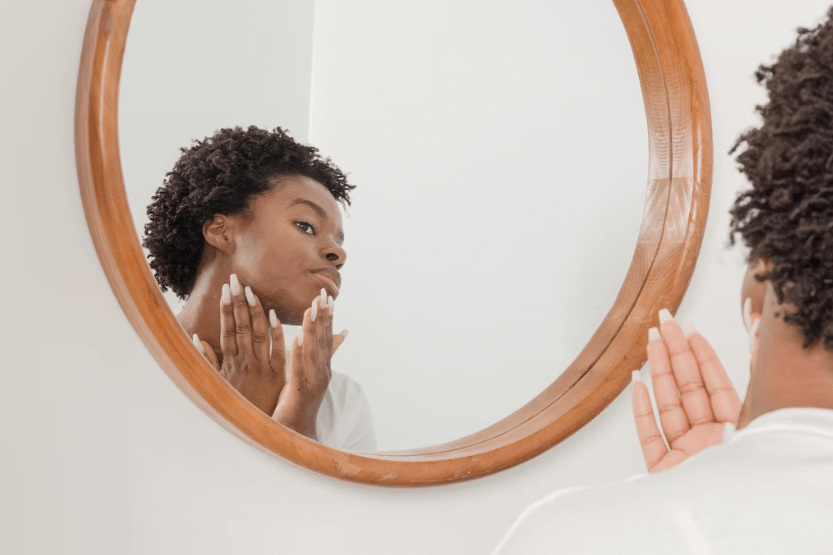
While Aquaphor is generally considered safe for use on the skin, some individuals may experience side effects. According to WebMD, the following side effects may occur:
- Signs of an allergic reaction, such as rash, hives, or itching
- Red, swollen, blistered, or peeling skin with or without fever
- Wheezing, tightness in the chest or throat, trouble breathing, swallowing, or talking, unusual hoarseness, or swelling of the mouth, face, lips, tongue, or throat
If any of these symptoms occur, discontinue use of Aquaphor and seek medical attention immediately.
In addition to allergic reactions, Aquaphor may cause burning, stinging, or warmth at the application site. This is typically mild and should subside quickly. However, if the burning or stinging persists or becomes severe, contact a dermatologist.
Aquaphor should not be used on deep wounds, open sores, oozing or bleeding skin, or severe burns. It is important to follow the product’s warning label and use only as directed.
While there is no evidence to suggest that Aquaphor is harmful to pregnant or nursing mothers, it is always recommended to consult with a healthcare professional before using any new product.
Overall, Aquaphor is a safe and effective option for moisturizing and protecting the skin. However, as with any product, it is important to be aware of possible side effects and use only as directed.
Alternatives to Aquaphor for Acne Treatment

While Aquaphor is a popular choice for treating acne, there are several alternatives that may be just as effective. Here are some options to consider:
1. Tea Tree Oil
Tea tree oil is a natural antiseptic and has been shown to be effective in treating acne. It can help reduce inflammation and kill bacteria on the skin. Tea tree oil can be applied directly to the skin or mixed with a carrier oil, such as coconut oil, before applying.
2. Benzoyl Peroxide
Benzoyl peroxide is a common ingredient in many acne treatments. It works by killing the bacteria that cause acne and by helping to unclog pores. Benzoyl peroxide can be found in over-the-counter acne treatments or prescribed by a dermatologist.
3. Salicylic Acid
Salicylic acid is another common ingredient in acne treatments. It works by exfoliating the skin and unclogging pores. Salicylic acid can be found in over-the-counter acne treatments or prescribed by a dermatologist.
4. Retinoids
Retinoids are a type of vitamin A derivative that can help unclog pores and reduce inflammation. They can be found in over-the-counter acne treatments or prescribed by a dermatologist.
5. Sulfur
Sulfur is a natural mineral that has been used for centuries to treat acne. It works by reducing inflammation and killing bacteria on the skin. Sulfur can be found in over-the-counter acne treatments or prescribed by a dermatologist.
Hey, here’s the thing: everyone’s skin is unique, so what works for one person might not work for another when it comes to acne treatment. It might take a bit of trial and error to find what’s right for you.
If you’re feeling unsure about which treatment to go for, it’s always a good idea to have a chat with a dermatologist. They can give you some expert guidance tailored to your skin’s needs. Remember, finding the perfect acne treatment is all about finding what works best for you!
In Summary
Aquaphor is a popular ointment that is often used to treat dry, chapped skin. However, many people wonder if it can also be used to treat acne. While there is no definitive answer, there are a few things to consider when deciding whether or not to use Aquaphor for acne.
First, Aquaphor is an occlusive moisturizer, which means that it forms a barrier on the skin to lock in moisture. This can be helpful for people with dry, flaky skin, but it may not be ideal for those with acne-prone skin.
The occlusive nature of Aquaphor can trap oil and bacteria on the skin, which can lead to clogged pores and breakouts.
On the other hand, some people have found that Aquaphor can be helpful for treating acne scars and hyperpigmentation. The moisturizing properties of Aquaphor can help to improve the overall appearance of the skin and reduce the appearance of scars over time.
Overall, whether or not Aquaphor is a good choice for treating acne will depend on the individual and their skin type. It may be worth trying as a spot treatment for acne scars, but it should be used with caution on acne-prone skin.
As with any new skincare product, it is important to patch test before using it on the entire face to avoid any potential adverse reactions.

